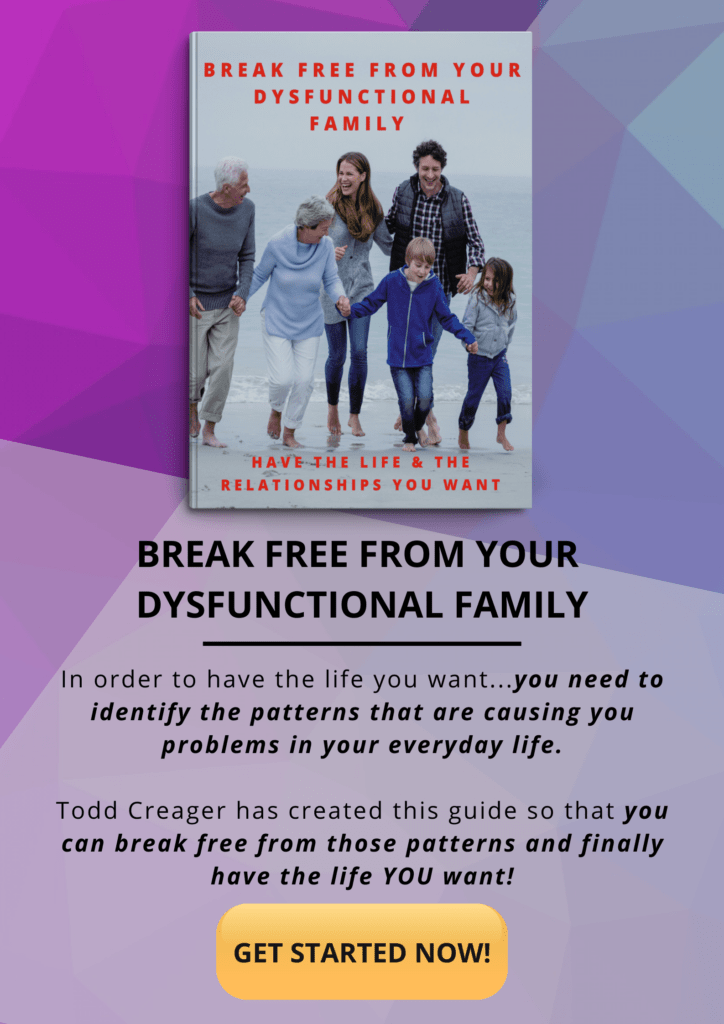When Bickering Becomes Your Relationship’s Default Setting: What Nobody Tells You About Breaking the Cycle
You know that moment when you realize you’ve had the same argument for the third time this week? Not even about anything important—just that familiar dance where one person brings something up, the other gets defensive, and within minutes you’re both exhausted and further apart than when you started.
Here’s what I’ve seen after working with hundreds of couples: most relationship advice tells you to “communicate better” or “really listen to each other.” But that’s like telling someone who’s drowning to “just swim harder.” When you’re already in reactive mode, those tools are about as useful as a chocolate teapot.
TL;DR: Constant bickering isn’t a communication problem—it’s a nervous system problem. Most couples are trying to solve the wrong issue. They think they need better words when they actually need to slow down their reactivity first. The pattern isn’t: bad communication → disconnection. It’s: dysregulation → reactive communication → more dysregulation → deeper disconnection.
What Most People Miss:
→ Your brain can’t process your partner’s perspective when you’re in defensive mode—it’s literally a neurological impossibility, not a character flaw
→ The content of your arguments matters far less than the speed at which you’re having them
→ Trying to “fix” the relationship through more talking when you’re both activated is like throwing gasoline on a fire and expecting it to help
Why “Just Communicate Better” Is Terrible Advice
I worked with Rick and Diane for about six months. Twenty-five years married, three kids, successful careers. They came in doing what I call the “bicker-escalate-disconnect” loop. Diane would bring up feeling disconnected. Rick would immediately defend himself—”Look what I provide! I’m doing my best!” Diane would feel unheard. Rick would feel unappreciated. Both would shut down.
Sound familiar?
Here’s the thing that took them weeks to understand: they weren’t having a communication problem. They were having a regulation problem.
When Diane approached Rick with a complaint, his nervous system heard: “You’re failing. You’re not enough.” Within seconds—and I mean seconds—his body was flooded with cortisol and adrenaline. His brain literally couldn’t access the parts responsible for empathy, perspective-taking, or curiosity. He was in survival mode.
Same thing happened to Diane when Rick got defensive. Her nervous system interpreted his defensiveness as: “Your feelings don’t matter. You’re too much.” And off to the races they’d go.
Most couples therapy focuses on teaching you communication techniques while you’re dysregulated. That’s backwards. You can’t use sophisticated tools when your brain is in fight-or-flight mode. It’s like trying to perform surgery while riding a rollercoaster.
The Speed Problem Nobody Talks About
After analyzing patterns with couples for over two decades, I’ve noticed something: the couples who bicker constantly aren’t arguing about different things than couples who don’t—they’re arguing at different speeds.
Think about it. When Diane said “I don’t feel close to you,” Rick had maybe half a second before his defensive response kicked in. That’s not enough time for his nervous system to settle, for him to get curious, for him to access the part of his brain that could hear her pain instead of just hearing criticism.
The arguments weren’t happening because they disagreed. The arguments were happening because neither of them could slow down enough to notice what was actually happening inside themselves before they reacted to each other.
This is where most relationship advice goes wrong. It tells you what to say differently. But it doesn’t address the state you’re in when you’re saying it.
I’ll give you a real example from Rick and Diane’s process. About two months in, Diane started to feel that familiar frustration building. But instead of immediately going to Rick with her complaint, she paused. She got curious about what was happening in her body. Tight chest. Throat constricting. That old story playing: “He’ll never prioritize me.”
That pause—maybe thirty seconds—changed everything. Because when she did approach Rick, she wasn’t coming from that activated, desperate place. She was coming from a more grounded space. And Rick could feel the difference. His nervous system didn’t immediately interpret her as a threat.
What’s Really Happening When You Bicker
Most couples think they’re arguing about dishes, money, sex, parenting, or time. And sure, those are the topics. But here’s what’s actually happening underneath:
You’re each trying to protect yourself from feeling something that feels unbearable. For Rick, it was feeling like a failure. For Diane, it was feeling invisible and unimportant. Every bickering match was both of them trying to avoid those core feelings while simultaneously triggering exactly those feelings in each other.
This is the part that most people find hard to accept: when you’re judging your partner, you’re revealing more about your own pain than about their behavior.
When Diane judged Rick as “caring more about work than me,” she was really saying: “I’m terrified I don’t matter.” When Rick judged Diane as “never satisfied,” he was really saying: “I’m terrified I’m not enough.”
But you can’t hear that nuance when you’re moving at argument speed. You’re just defending, attacking, or shutting down.
Why Disconnection Feels Easier (And Why That’s the Trap)
Rick and Diane had developed what a lot of couples develop: conflict fatigue. They’d had so many unrewarding conversations that just talking about emotional stuff felt pointless. So they’d disconnect. Live parallel lives. Be polite roommates who occasionally had sex out of obligation.
And honestly? For a while, that feels better than the constant fighting. It’s quieter. Less chaotic. You can convince yourself you’re being “mature” by not bringing things up.
But here’s the problem: disconnection doesn’t heal anything. It just postpones the pain. And while you’re disconnected, resentment builds. Distance grows. And the gap between you becomes harder and harder to bridge.
I see couples who’ve been disconnected for so long that they’ve forgotten they ever felt connected. They look at each other across my office like strangers, both thinking: “Is it even worth trying?”
The answer is usually yes. But not by doing more of what hasn’t worked.
The Real Answer Isn’t What You Think
Rick and Diane didn’t save their relationship by learning better communication techniques. They saved it by learning to slow down their nervous systems first.
We worked on what I call the Stop Technique—though that’s somewhat of a misnomer because it’s not really about stopping. It’s about creating space between stimulus and response. It’s about noticing what’s happening in your body before you react to your partner.
Sounds simple, right? It’s not. Or rather, it’s simple but not easy.
Because slowing down feels counterintuitive when you’re upset. Your body wants to react NOW. Your brain is screaming: “Defend yourself! Make them understand! Fix this immediately!”
But that urgency is exactly what keeps you stuck.
Rick and Diane practiced—and I mean actually practiced, like homework—slowing down their reactivity. At first for just a few minutes a day. Not when they were in the middle of an argument (that’s too hard). But in calm moments, practicing noticing their internal state. Practicing getting curious about their own reactions before trying to manage their partner’s behavior.
Here’s what started to shift: when Diane felt that familiar frustration building, she could recognize it earlier. She could feel her body tensing up, notice that old story starting to play. And instead of immediately bringing it to Rick from that activated place, she could take a few breaths. Get grounded. Figure out what she actually needed instead of just what she was mad about.
Same with Rick. When Diane brought something up, he could notice his defensiveness rising before it took over completely. He could feel his chest tightening, hear that voice saying “You’re not enough.” And instead of immediately defending himself, he could pause. Just for a moment. Long enough to remember: “Her pain isn’t proof of my failure.”
What Changed (And What Didn’t)
Here’s what didn’t change: Rick still worked a lot. Diane still wanted more connection. Their circumstances stayed pretty much the same.
Here’s what did change: how they were with each other in those circumstances.
Rick didn’t suddenly start working 20 fewer hours a week. But when he was with Diane, he was actually with her. Not halfway out the door mentally. Not defending his choices. Just present.
Diane didn’t lower her standards or decide she was asking for too much. But she stopped approaching Rick from that desperate, activated place that made him immediately defensive. She learned to ask for what she needed from a grounded place, which made it about a thousand times easier for Rick to actually hear her.
And the bickering? Pretty much stopped. Not because they never disagreed, but because when they did, they could slow down enough to actually work through it instead of just reacting to each other.
Why This Works When Everything Else Hasn’t
After working with couples for decades, I can tell you: the ones who make it aren’t the ones who never fight or disagree. They’re the ones who learn to regulate themselves first before trying to regulate each other.
Most relationship advice puts the cart before the horse. It tells you to validate your partner’s feelings, use “I” statements, really listen, show empathy. All good things. But impossible to do when your nervous system is flooded.
You have to slow down first. Get your own nervous system settled. Only then can you access the parts of your brain that can be curious, empathetic, and flexible.
This isn’t about becoming some enlightened being who never gets triggered. Rick and Diane still get activated sometimes. I still get activated with my own partner. We’re human. But the difference is in what you do with that activation. Do you let it drive the bus? Or do you notice it, acknowledge it, and choose to respond from a more grounded place?
That’s the skill. And it’s a skill anyone can learn, even if you’ve been stuck in the bicker-escalate-disconnect pattern for years.
What Actually Reconnects You (Without More Talking)
Here’s something that surprises people: the best reconnection often happens without words.
When Rick and Diane were both activated, talking made things worse. Every word was just more ammunition. But when they’d slow down together—maybe just sit quietly for a few minutes, or take a walk without trying to solve anything, or even just breathe in the same room—their nervous systems would start to sync up again.
You can reconnect through presence before you can reconnect through words. Your body knows this even if your mind doesn’t trust it yet.
Some of the most powerful sessions with Rick and Diane involved very little talking. They’d practice just being in the same space, noticing their own reactions, breathing, settling. Not trying to fix anything. Not explaining or defending. Just… being.
That probably sounds too simple to work. But simple doesn’t mean ineffective.
Moving Forward (Without the Usual Bullshit About “Communication”)
If you’re stuck in the bicker-escalate-disconnect pattern, you probably don’t need another article telling you to “really listen” or “use active listening techniques.” You need permission to stop trying to communicate your way out of a dysregulated nervous system.
You need to learn to slow down first. To notice what’s happening in your body before you react to your partner. To get curious about your own pain instead of just managing your partner’s behavior.
This isn’t about becoming perfect at self-regulation. It’s about getting just good enough at it that you can interrupt the old patterns before they completely take over.
Rick and Diane aren’t perfect at this. They still slip into old patterns sometimes. But now they can catch themselves earlier. They can notice when they’re speeding up and choose to slow down instead. And that makes all the difference.
Your relationship can feel good again. But probably not by doing more of what hasn’t worked. Not by talking more, solving more, or explaining more. By slowing down first, then connecting from that more grounded place.
That’s where the real work is. And it takes less time than you think—but maybe more awareness than you’re used to bringing to your daily interactions.
Todd Creager has worked with couples navigating infidelity, trauma, and disconnection for over two decades. He specializes in somatic and body-centered approaches that address the nervous system patterns underlying relationship struggles. His work focuses on helping couples move beyond reactive communication patterns to create genuine connection and safety.






Reader Interactions